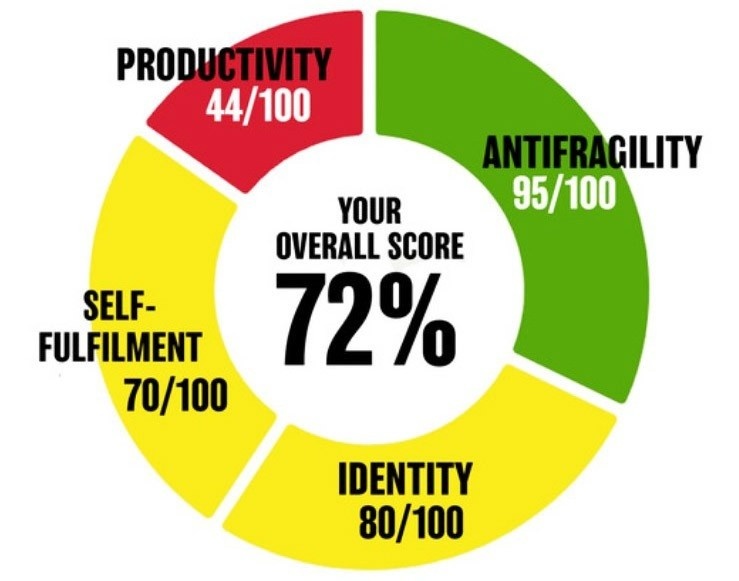The Mindset of a Billionaire – Learn How To Think Correctly // Billionaires are not superhuman, they are not cut from a different cloth or have special abilities. However, their advantage is the way they see the world and how they think. In this video peak performance coach and expert Eric Partaker shares some invaluable insights about how adopting the billionaire mindset can transform your life and help you achieve your goals. Changing your mindset and following with intentionality and deliberate action, can make all the difference and create phenomenal results. Embrace these mindset traits and start thinking like a billionaire now!
KEY POINTS
You Don’t Always Have To Be Right! – Prioritize decisiveness, speed over precision, make decisions quickly and then act! Part of making a wise decision is recognizing that you don’t always have to be right. If you’re wrong, accept it, make another decision, and move forward.
Your Best Teacher Is Your Last Mistake – Mistakes are a fundamental part of your evolution, growth and development. Don’t be afraid to make mistakes, embrace them. It’s through mistakes that you’ll collect the valuable learning you need to reach your goals.
Do Your Friends Bring Out The Best In You? – You are the average of the five people that you spend the most time with. Associate yourself with successful positive people who are going to help you reach the next level and bring out the best in you.
Pay Yourself First! – Do you pay yourself first at the end of every month? Decide what you’re going to save, then limit your expenses to what’s left over from that.
Shoot For The Moon – Even if you miss you’ll land amongst the stars. Big goals commit you to action. Start acting now, become hyper aware of your time and whether you’re spending it in a positive, productive way to enable you to achieve your goals.
Take Small Steps! – Create milestones that you want to reach, so that you can get a taste of success on your way to achieving your big goal.
Identify With Your Best Self – Who are you at your best on the health, wealth and relationship front? What will that version of you achieve today?
TRANSCRIPT
Most people don’t know how to build their self discipline. They continually struggle with doing the things they know that they shouldn’t be doing, but not actually doing them. But building self-discipline is easier than you think. And today I’m going to share five actionable strategies that you can use to build the self-discipline that you seek.
Hi, my name is Eric Partaker and I’m a peak performance expert, and I’ve also been recognized as a CEO of the year. I’m also the author of two best-selling books, including The 3 Alarms. Now, you may think that you’ve always struggled with discipline your whole life so that there’s no way that you can develop the unbreakable self-discipline that you’ve always wanted. But then you’d be totally wrong because I used to be a disaster when it came to maintaining my discipline. But I totally changed and so can you. So here are five rules to develop unbreakable discipline in your work and life.
Number one, the first thing that you can do is to get organized and the best way that I recommend that you do this is through the use of a planner, a daily planner of some sort, a dedicated journal can be electronic or physical, I prefer a physical journal, a dedicated journal or book that you’ll use to organize your professional and personal life. And there’s just a couple of things that I recommend that you do that if done will allow you to start your week and go through your days feeling more in control, feeling more disciplined because you know what you’re going to be doing and when you’re going to be doing it. The first thing that I recommend that you do is either on a Friday afternoon or on a Sunday to plan your next week, to plan out what are the top three things that you want to achieve in the week ahead and when will you be doing those things.
And then as you end each day in the following week, the last thing that you do at the end of your day is to simply plan out in the next day what are the top three things I’m going to do within that day and when will you be doing them and schedule them into your day, just as you would appointments with someone else. So organize your life, use a daily planner, get into the habit of planning out your weeks and planning out your days and you will feel a lot more disciplined because you know what you’re going to be doing and when you’re going to be doing it. The number two thing that we need to do is we need to account for decision fatigue. So your willpower, your ability to maintain the course and do what you think that you should be doing, that you know that you should be doing, whether you feel like it or not, that’s a muscle and that fatigues throughout the day.
So if we think about that, when is the muscle strongest? Well, at the start of the day. So what I always like to do is make sure that I’m doing my most important tasks at the very start of the day. And as a matter of fact, in the first hour of the day I make sure that I’m creative before I’m reactive. Before I go into email, or social media, or read the news, I make sure that I’m doing one of those top three things that I decided on the night before, as one of the very first things that I’m doing that day. If you start your day in that way, if you start your focused on the things that are most important for the day and get those things done first, the rest of the day will feel downhill because you’ve already reached the summit in a way.
And that also then matches really well back to your decision fatigue, because you want to be able to take those harder decisions earlier in the day when you’re feeling strongest, rather than waiting till later in the day. Next step, use rewards strategically. You can’t just be a discipline machine all the time. So we use rewards to give us something to look forward to, and also provide a little bit of rest and recovery. And I like to think of rewards on a micro and macro way. So for example, during the course of the day, don’t just work full on nonstop all day long, make sure that you’re weaving breaks into your day. Even within a half hour, take five minutes off, within an hour take 10 minutes off and do something completely non-work-related or that doesn’t relate to what you’re trying to apply the discipline towards whatever that might be professional or personal.
Take that break, reward yourself with a little bit of time off and by staying disciplined through the course of your day, maybe reward yourself in the evening by doing something fun with your family or friends or just something enjoyable for yourself. And similarly for the weekends, use that also as a key time to reward yourself, a key time to allow yourself to do something fun and social or something that you just enjoy from a hobby point of view, to reward yourself for having maintain that discipline in the prior week.
Next on the list, fuel yourself regularly and healthily. So what I mean is that you need to keep the body and the energy operating at a high level. So stay well hydrated through the course of the day. Often, sometimes like when you feel fatigued and you feel that your discipline is waining, it might be because you haven’t had a drink water in three hours.
So get up and take those breaks as I mentioned earlier, and during those breaks, maybe get a glass of water, or have a piece of fruit, or eat something healthy in the form of a snack, but stay away from the garbage. Garbage in, garbage out. If during your break if you’re grabbing a donut, or a piece of cake, or eating some processed foods, these are actually things that are going to hurt your ability to maintain your discipline. Last but not least, to develop your self discipline. I want you to focus on the start rather than the finish. Focus on choosing to start whatever the task is, rather than trying to finish everything. If you just continually focus on starting throughout the day, the finishing eventually just takes care of itself. And it’s very powerful to actually replace the self-talk in your head.
For example, the, “I have to finish,” with, “I choose to start.” And you can even make that small if you want to. I choose to start for 1 minute, or 5 minutes, or 10 minutes, but just focus on starting. Get into that habit of just focusing on the start and the finishing will take care of itself. Another interesting thing too happens, when you focus just on starting and when you just choose to do that, you make the choice, you don’t need to like to do whatever it is, but you make the choice to just start on it, you never know when those initial minutes pass by because you just get lost into what you do. So the simplest way, once again, to maintain your discipline, especially when trying to do a task that you don’t want to do, or a discipline behavior that you don’t want to engage in is just choose to start.
And I’d love to hear from you. So don’t forget to leave a comment and a rating as well. And if you’d like to get a copy of my new book, The 3 Alarms, please head over to my website at ericpartaker.com. That’s E-R-I-C ericpartaker.com, where you can pick up a free digital copy of my new best-selling book, The 3 Alarms.




